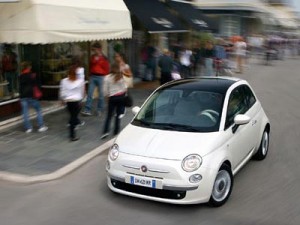New Cars In Europe Must Slash Carbon Emissions One Third By 2020
 Carmakers will have to slash the carbon emissions of new cars sold in Europe by a third by 2020, according to leaked European Commission documents seen by the Guardian. [Guardian]
Carmakers will have to slash the carbon emissions of new cars sold in Europe by a third by 2020, according to leaked European Commission documents seen by the Guardian. [Guardian]Bloggers and TV comics have ridiculed it, and now state legislators will get their first chance Thursday to debate unusual legislation that would put tight restrictions on how state and local agencies cope with rising sea levels. [News Observer]
Melting ice cellars and rotting whale meat, the arrival of beaver fever in a once-pristine land, and water supplies that might go dry are just a few of the health risks posed by climate change in the Arctic. [Alaska Dispatch]
Evidence continues to mount that melting Arctic ice is having a significant effect in the mid-latitudes, where most people live, and it’s not something that’s going to take decades to develop. [Summit County Citizens Voice]
Authorities say a gas drilling operation in the Sardis, W.Va. area hit an aquifer and inadvertently re-pressurized a handful of old water wells Wednesday, creating a backyard geyser at least 10 feet high and several smaller gushers. [Associated Press]
In a project that aimed to analyze public perceptions of global warming, the researchers focused on ‘psychological distance’ in prompting people to go greener and the significance of uncertainty as justification for inaction. [phys.org]
Mali and neighboring Niger are facing swarms of locusts, which were left uncontrolled while Libya and Algeria, which normally keep local locusts from moving south, grappled with conflicts and insecurity of their own. [Los Angeles Times]
You can return to the main Market News page, or press the Back button on your browser.

